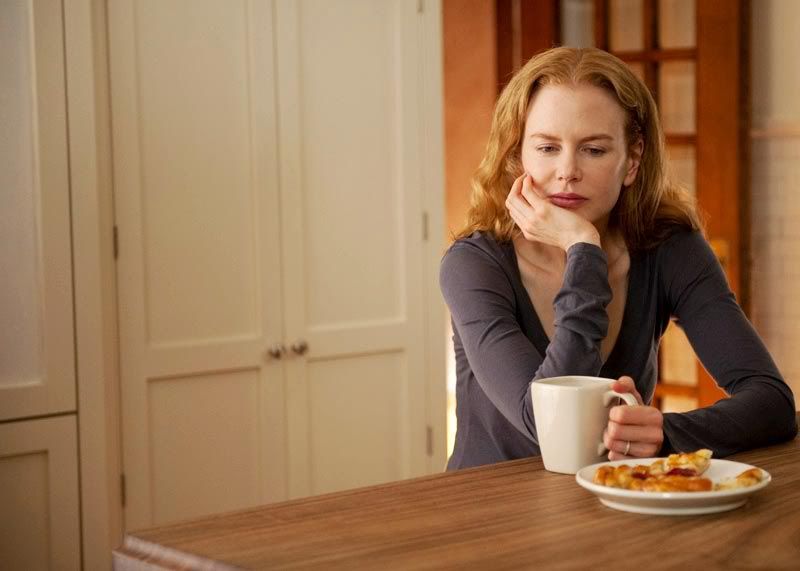People in mourning are freaks, outcasts, often a bit ridiculous in their self-inflicted isolation. When circumstances force you to join their tribe, do you automatically become one of them? That's the question at the heart of Rabbit Hole, which I'd describe as an absurdist take on the self-perpetuating theatre of mourning.
When someone tells you they've lost a child, a gallery of eggshells appears between you and the bereaved. Eight months after losing her only son in an unfortunate accident, Becca (Nicole Kidman) loses patience with, well, patience, and decides that the time to move on is now, whether she's emotionally ready or not. And if that means breaking every one of those eggshells, then so be it. Like the title character in Rachel Getting Married, you can't stop watching Becca because you never know what explosively inappropriate statement she might make next.
When the movie was first announced, I think the general question was "Why is John Cameron Mitchell directing a relationship drama?" You may recall Mitchell from the masterpiece that is Hedwig and the Angry Inch, as well as the less successful Shortbus. But in many ways the choice was perfect. The film, and the play it was based on, were never meant to be mawkish. It was intended to find a bit of humor in a horrible situation.
I haven't mentioned Aaron Eckhart's character until now. Essentially, he's a key player in the theatre of mourning. He is not ready to move on, in fact he's quite the opposite, he's clinging on to every last bit of the dead son, down to the fingerprint stains on the wall. The most tense scenes in the film come from Becca basically going "La-di-da, delete, la-di-da, erase," followed by Eckhart freaking out.
But saying all this, there's one important thing to note: you never hate Becca. For all the electric shocks she delivers to her therapy group, to her mother, and to her husband, there's a tenderness there. She is not acting out of bitterness or anger, this is just her way of coping. Her way of getting to a better place. This is never more clear than when she meets the teenager who killed her son. He's also breaking at the seams, and she has every opportunity to destroy him, but instead gives him peace.
I love movies where the filmmaker actually manages a fresh, believable take on a story that's been often told, and usually told badly. Films like Rabbit Hole remind me why I love indie movies; they reveal uncomfortable human truths during events that are often represented in completely one-sided ways. Sometimes the smallest moments have more day-to-day impact than the large scale disruptions that take you by surprise.


